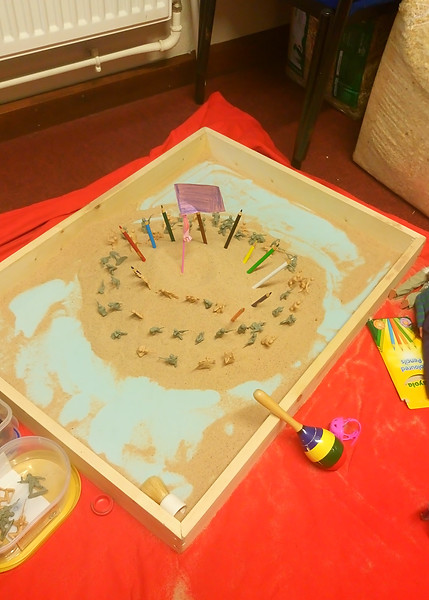Serenity Counselling & Living 2 Play
Serenity Counselling & Supervision
7 Lanoweth Penryn Cornwall UK
TR10 8RP
serenitycounsellingsupervision@gmail.com
About Play Therapy
'the natural medium of communication for children is Pay and Activity'
Play Therapy offers children to "play out" their experiences and feelings, which is the most natural dynamic and self-healing process in which children can engage.
Play therapy is defined as a dynamic interpersonal relationship between a child and a therapist trained in play therapy procedures who provides selective play materials and facilitates the development of a safe relationship for the child to fully express and explore self (feelings, thoughts, experiences, and behaviours) through the child's natural medium of communication, Play.
Toys are used as words by children and play is their language this helps children to make sense of their world, helps them to process their thoughts and feelings in a safe environment without any judgments imposed on them, freedom to be themselves to empower themselves to make choices which can increase their self-esteem, children use play to communicate at their own level and at their own pace. Play therapy can improve the emotional well-being of children. It may be used to alleviate mild emotional or psychological problems that are preventing a child from functioning to their full potential.
Children express themselves more fully and more directly through self-initiated spontaneous play than they do verbally because they are more comfortable with play.
(G L. Landreth)


Living 2 Play accepts referrals from Parents, All Schools, Health and Care Professionals, for children between the age of 4 to 11 years.
Play Therapy can help to support a child's well-being to help them lead a more fulfilling life.
Play is vital to every child's social, emotional, cognitive, physical, creative and language development. It helps make learning concrete for all children and young people including those for whom verbal communication may be difficult.
Play Therapy helps children in a variety of ways. Children receive emotional support and can learn to understand more about their own feelings and thoughts. Sometimes they may re-enact or play out traumatic or difficult life experiences in order to make sense of their past to be able to cope better with the here and now.
Children may also learn to manage relationships and conflicts in more appropriate ways.
The outcomes of Play Therapy can e.g. reduce anxiety, raised self-esteem or a more specific change in their behaviour and improve relations with family and friends.